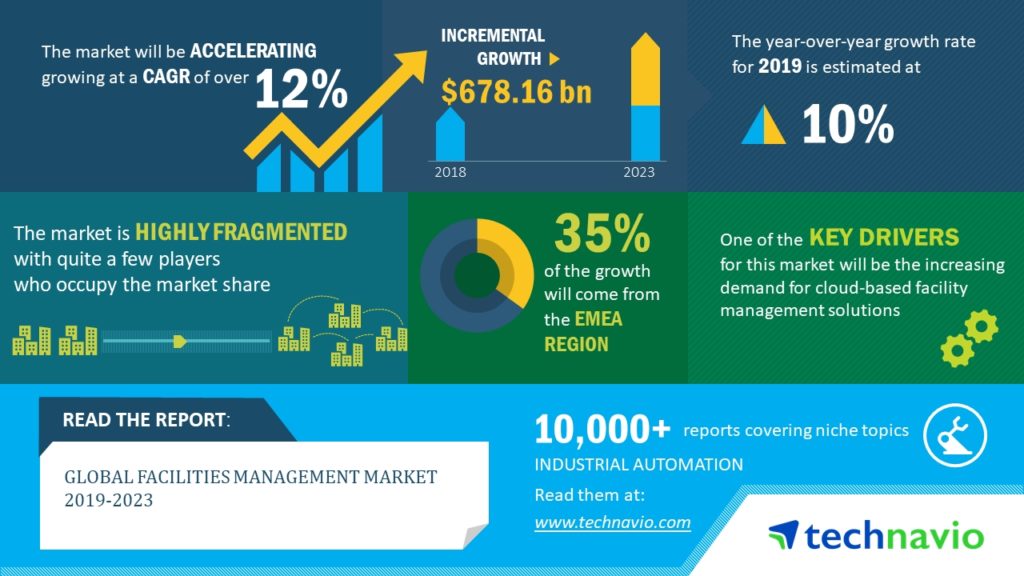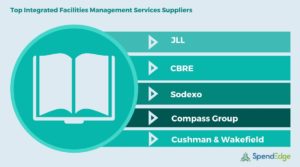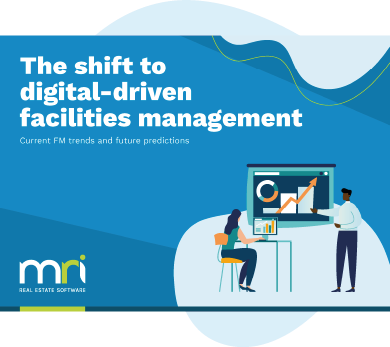What is Facilities Management? Meaning, Role & More
Facilities Management is a profession that refers to the integration of physical infrastructures (like technology) and the employees who maintain the safety, security, and efficiency of these systems.
The term was first coined 60 years ago, and, since then, the global facility management market has grown to a value of $1,239.99 billion in 2021 and is even expected to increase a CAGR of 5.7% this 2022.

What Does A Facility Manager Do?
Facilities Managers are “considered strategic executives who are integral to an organization’s ongoing success.” They are responsible for the maintenance of “places of work” (such as offices, retail stores, and warehouses) and ensuring the proper function of business operations.
Institutes of higher learning now offer advanced facility management degrees, and the position has evolved from a “handyman” position into a sophisticated professional management discipline that involves initiative, forethought, and planning.
Not to be confused with property management, facilities management descriptions focus less on the buildings themselves and more on the processes and people required to ensure safety and security. For example, they might organize fire alarm checks on a regular basis and communicate with electricians when needed.
Responsibilities of Facility Managers
In simple terms, building and facilities management is the efficient coordination of all activities related to keeping physical spaces and infrastructures operational; from single buildings to complex campuses used for a range of revenue-generating sites, like retail, manufacturing, and healthcare.
The management of facilities includes making sure each element of a working environment is safe simply by meeting relevant regulatory mandates, conducting frequent maintenance, and reorganizing structural layouts.
This should all be done in a way that promotes productivity and the well-being of every user.
The Role and Job of a Facility Manager
To truly get to the bottom of what facilities management is, let’s explore the two categories of their day-to-day jobs: hard services and soft services.
Hard Services
Hard services are related to physical structures (the parts that can’t easily be removed). Corporate facilities management is sometimes required by law to ensure the health and safety of workers or occupants:
- building maintenance
- maintenance of HVAC systems
- energy and water management
- elevators and escalators
- lighting
- fire safety
- plumbing and drainage
The role of facilities management, in this case, is to reduce the risk of accidents and disasters, which could then result in hefty insurance costs. Facilities management software is a great option for companies who need to stay up-to-date with repairs.
Soft Services
Soft services are related to keeping the workplace comfortable and secure.
Some of these facility management task descriptions are not absolutely necessary and can be added or removed after quality and budget reviews:
- housekeeping and custodial services
- security measures
- parking lot maintenance
- pest control
- waste disposal
- recycling
- replenishing furniture and equipment
- information systems
- document management
- mail management
- space management
- grounds maintenance and landscaping
The functions of facilities management are often favored by employees to make their lives easier. To prioritize these soft services accordingly, companies can get an overview of their costs through our integrated workplace management system solutions.

Overall, the job role promises a dynamic, challenging, and engaging career for every individual.
What Skill Sets Do Facility Managers Have?
Although Facilities Managers can expect to wear a variety of “proverbial hats”, there are some common skill sets all facility managers require (according to facility management news reporters):
- Willingness to Learn
- Digital Competency
- Problem-Solving
- Timekeeping
- Personability
- Budgeting/Finance
- Emergency Planning
- Innovation
- Leadership
- Environmental Stewardship
Case Study: Real Estate Facilities Management
A real estate facility manager has lots to pay attention to.
Not only is the industry fast-moving and constantly changing, but there are many minute details that go into selling and investing in houses.
Digital competency, for them, is arguably the most important part of their job – allowing them to reallocate time-consuming tasks from their to-do list.
Property management software would also let facilities managers meet the extensive demands of their sector in an accurate, timely manner.
What is the Future of the Facility Management Industry?
Like almost every industry on the planet, smart technology has accelerated the field of facilities management.
To stay competitive in today’s marketplace, facilities management – whether it is handled internally or outsourced – needs to include a computerized maintenance management system (CMMS) complete with a mobile application.
Cloud-based automated solutions reduce the hours of wasted time spent on manual processes and eliminate downtime that results from human error.
A CMMS can revolutionize work order processes, preventative and predictive maintenance tasks, and the management of assets, vendors and inventory.
Facility management service providers will already be using these tools, and companies desiring smooth-running business operations should consider management software through MRI.
Technology & Facilities Management Companies
To this day, many smaller organizations may prefer to conduct management of facilities internally.
Even so, there are thousands of options for facility management services out there and businesses of all sizes have been growing the facilities maintenance industry – simply by outsourcing a task or two.

The burgeoning trend in the industry is to offer bundled building and facilities management. This comprehensive scope of services adds value and drives better quality. The top 10 integrated facilities management companies offer:
- Leadership
- Meeting room services
- Business risk assessments
- Catering services
- Business continuity planning
- Management of vehicle fleets
- Contract procurement
- Front-desk services
- Management of utilities
- Emergency response
In addition to freeing their own personnel to focus on goals more closely aligned with their core business, companies purchasing facility management services benefit in several measurable ways.
- Improved Efficiencies: A single point of contact eliminates duplicate functions, streamlines communication, and enhances workflow processes.
- Higher Productivity: Facilities management descriptions include maintenance strategies to prevent breakdowns that often bring production to a halt.
- Increased Expertise: The role of facilities management employees is to already have the technical know-how, saving companies from expending unnecessary time and resources on training in-house.
- Reduced Costs: In addition to spending less time on training, companies save on staffing, employee benefit, payroll expenses, inventory, and more.
- Better Quality Control: With proven systems already in place, facility management services produce consistency and reliability.
How Important is Facilities Management?
Facilities management has become a critical factor in a company’s growth.
According to Gartner, “providing a workspace to an individual employee costs an organization from $8,000 to $14,000 per year.”
Proper maintenance of these spaces can help businesses avoid sudden and expensive costs – and through FM technology, businesses can save a 5% reduction in the total cost of occupancy.
From looking after equipment to creating an environment that supports the company culture, facilities management adds value on a daily basis and for the long term.
High-performing businesses understand the necessity of prioritizing building facilities management. This aspect of their operations and expect facilities management companies to offer solutions based on cutting-edge technological trends.
If you’re not already using an automated solution to manage your facilities, work orders, maintenance, assets, and more… it’s a good place to start.
Here at MRI, we offer intuitive and flexible software solutions to help you transform your organization.
Reach out if you have questions, or better yet, take a look at what we can do with our no-obligation, free demonstration. Contact us today.
Leading solutions for property occupiers, owners and service providers & contractors.Facilities Management software

The shift to digital-driven Facilities Management
Introduction Historically, the success of the FM function was measured by its ability to keep things running behind the scenes. With new and urgent industry challenges bringing facilities management into the limelight, this is no longer the case. Fac…
